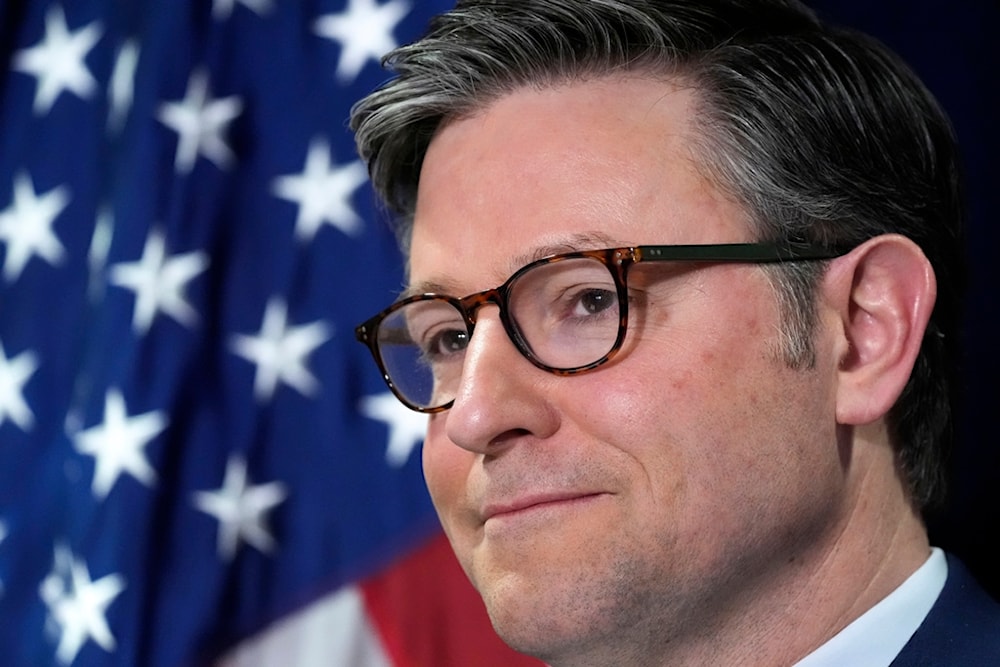US House Speaker signals 'no appetite' for new Ukraine funding
House Speaker Mike Johnson smirked when asked if Ukraine is a democracy, signaling growing skepticism among US conservatives about Ukraine's political system.
-

House Speaker Mike Johnson, R-La., pauses during a news conference at the Republican National Committee headquarters in Washington, Wednesday, January 22, 2025. (AP)
US House Speaker Mike Johnson stated at the Conservative Political Action Conference (CPAC) that there is "no appetite" among US congressmen to consider new funding for Ukraine. He told reporters, "Look, there is no appetite for that," reflecting a decline in congressional support for continued aid amid the ongoing Ukraine-Russia conflict.
During the session, Johnson also smirked when asked if Ukraine is a democracy, signaling growing skepticism among US conservatives about Ukraine's political system. This reflects a shifting political climate as lawmakers debate the future of US aid to Ukraine.
US spending on Ukraine and Trump’s pivot toward Russia
The United States has allocated nearly $183 billion in response to the Ukraine conflict, with $130.1 billion obligated and $86.7 billion disbursed as of September 30, 2024. This assistance includes military aid, economic support, and humanitarian relief. However, growing reluctance among US lawmakers is now putting the future of this financial support in doubt.
Moreover, tensions between US President Donald Trump and Ukrainian President Volodymyr Zelensky have escalated recently. Trump labeled Zelensky a "dictator without elections" and blamed Ukraine for initiating the conflict with Russia. In response, Zelensky accused Trump of being influenced by Russian disinformation.
The situation further deteriorated when a planned news conference between Zelensky and US envoy Lt. Gen. Keith Kellogg was abruptly canceled at the US's request, avoiding public discussion of the diplomatic tensions.
Read more: Russia asked US to withdraw NATO from eastern Europe: Financial Times
Earlier today, a report published by The Economist detailed that Trump is seeking to "get rid of" Zelensky as part of a shift in US policy on Ukraine, amid growing tensions between the two leaders and ongoing US-Russia negotiations that excluded Kiev.

 2 Min Read
2 Min Read









